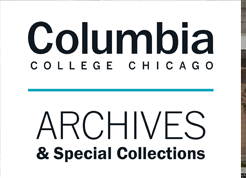Title
Apocalypse & Affect: Political Passivity in Film and Television Representations of Nuclear Holocaust
Date of Award
5-13-2016
Degree Type
Capstone Thesis
Degree Name
Bachelor of Arts in Cultural Studies (BA)
Department
Cultural Studies
First Advisor
Douglas Reichert Powell
Second Advisor
Jean Petrelle
Third Advisor
Kenneth Daley
Abstract
Within the expanding canon of apocalyptic and post-apocalyptic film and television, this project studies the subgenre that makes use of nuclear holocaust as a narrative device or setting in order to understand how, rather than engaging audiences with the dire off-screen politics that inform such films, it imposes a sense of political passivity on its characters. Similarly imparted is an assumption of that same sense for the audience. In this way, the framing of modern apocalyptic narratives meet an “affective limitation,” which is a concept steeped in the examination of media as a potential tool to motivate political action (Massumi 232-233). Since the United States’ implementation of the atomic bomb as a weapon of war, nuclear holocaust has provided creative writers and filmmakers with an important new thematic landscape in which to explore the human condition. This project highlights a correlation between three distinct increases in nuclear-themed apocalyptic cultural productions relative to historical instances of geopolitical tensions among nuclear-armed nations. The expansion of the genre and the transition to post-apocalypse decontextualizes those tensions through increasingly unlikely scenarios. However, there is a disturbing imbalance between the growth in demand for the apocalyptic genre and audiences’ relative lack of political engagement. This imbalance is perpetuated, in part, by media productions’ tendency to be ahistorical, depoliticized, and affectively passive. 57 pages.
Creative Commons License

This work is licensed under a Creative Commons Attribution-NonCommercial-No Derivative Works 4.0 International License.
Recommended Citation
Rooks, W W., "Apocalypse & Affect: Political Passivity in Film and Television Representations of Nuclear Holocaust" (2016). Cultural Studies Capstone Papers. 23.
https://digitalcommons.colum.edu/cultural_studies/23
Included in
American Material Culture Commons, American Popular Culture Commons, Cultural History Commons, Lesbian, Gay, Bisexual, and Transgender Studies Commons, Other Languages, Societies, and Cultures Commons, Race, Ethnicity and Post-Colonial Studies Commons, Television Commons, Women's Studies Commons

